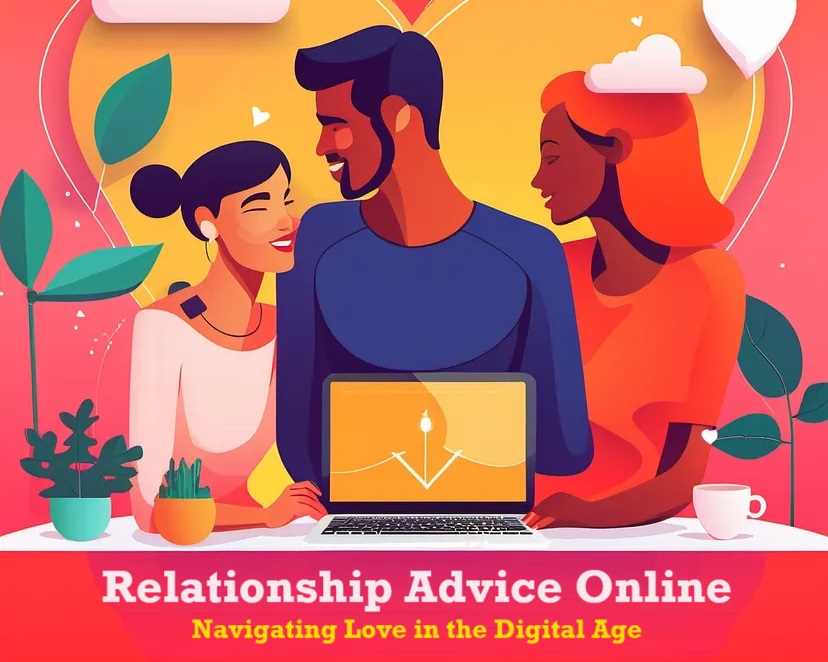
Relationship Advice Online: Navigating Love in the Digital Age
Relationship Advice Online: Navigating Love in the Digital Age
Relationship Advice Online In today’s digital age, seeking relationship advice online has become very common. The Internet offers a wealth of resources, from expert articles and forums to video tutorials and live coaching sessions. Whether you’re starting a new romance, strengthening a long-term relationship, or dealing with a breakup, the online world offers valuable insight and support. This article explores the benefits of online relationship counseling, the best resources available, and tips for understanding reliable advice.
Benefits of getting relationship advice online
The convenience and accessibility of online relationship counseling makes it an attractive option for many people. Here are some key benefits:
Anonymity and Privacy: One of the most important benefits is the ability to get help anonymously. This is especially useful for people who may feel shy or hesitant to discuss personal issues face-to-face.
Wide range of resources: The Internet is a wealth of information, offering everything from professional counseling services to peer support forums. You can get advice on virtually any relationship topic, according to different cultural, age, and sexual orientation perspectives.
Access: Online resources are available 24/7, making it easy to access help at any time. This is especially useful for those with busy schedules or who live in areas with limited access to professional relationship counselors.
Cost Effectiveness: Many online resources are free or significantly cheaper than traditional counseling sessions, making professional counseling more accessible to a wider audience.
Top Online Resources for Relationship Advice

Blogs and Articles: Many relationship experts, therapists, and psychologists maintain blogs where they share their insights and advice. Websites such as Psychology Today, The Gottman Institute, and Leo Pinky offer expert articles on a variety of relationship issues, from communication and intimacy to conflict resolution and mental health.
Online forums and communities: Platforms like Reddit, Quora, and specialized forums provide a place for people to ask questions and share experiences. These communities can offer valuable peer support and practical advice based on real-life experiences.
YouTube channels and podcasts: Visual and auditory learners may prefer video or audio content. Channels like Matthew Hussey, Esther Perel, and The School of Life provide engaging videos and podcasts on love, relationships, and self-improvement.
Online counseling and coaching: Services like BetterHelp, ReGain, and Talkspace connect individuals with licensed therapists and coaches for online sessions. These platforms provide a more personalized approach, helping people deal with their specific relationship challenges.
How to Spot a Trusted Relationship Advice Online
With the abundance of information available online, it’s important to be savvy about the advice you follow. Here are some tips to help you gauge the credibility of online relationship advice:
Check the source: Make sure the information comes from a reputable source, such as a licensed therapist, psychologist, or reputable relationship expert. Look for credentials and professional affiliations that indicate expertise in the field.
Consider tone and approach: Trustworthy advice is usually balanced and empathetic, avoiding overly simplistic or sensational language. Be wary of advice that makes big promises or uses fear tactics.
Seek evidence-based advice: Quality relationship advice often refers to research studies, psychological theories, or evidence-based practices. This helps ensure that advice is based on proven methodology rather than anecdotal evidence.
Read reviews and testimonials: For online counseling and coaching services, read reviews and testimonials from other users. This can provide insight into the quality of service and the effectiveness of advice.
Use multiple sources: Cross-referencing information from multiple credible sources can help you gain a more comprehensive understanding of your problem. It also helps filter out biased or misleading advice.
Popular topics in online relationship advice
Communication Skills: Effective communication is the foundation of a healthy relationship. Many online resources focus on teaching couples how to express their feelings, listen actively, and resolve conflicts constructively.
Building Trust and Intimacy: Trust and intimacy are important components of a strong relationship. Online counseling often covers topics such as maintaining honesty, setting boundaries, and increasing emotional and physical intimacy.
Managing Conflict: Conflict is a natural part of any relationship, but how it is managed can make a big difference. Online resources offer strategies for managing disagreements, avoiding harmful patterns, and reaching compromises.
Dating and Relationship Stages: From dating tips to advice on navigating the different stages of a relationship, the Internet is full of guidance on how to find and maintain a healthy partnership.
Self-improvement and personal growth: An important aspect of relationship counseling involves personal growth and self-awareness. Many resources encourage individuals to work on their own issues, such as self-esteem, emotional regulation, and personal goals, to improve their relationships.
The Future of Online Relationship Advice
As technology continues to evolve, the online relationship counseling landscape is likely to expand and diversify. Virtual reality (VR) and augmented reality (AR) may soon play a role in providing immersive consulting experiences. AI-powered chatbots and apps are already offering personalized advice and support, and this trend is expected to grow.
Additionally, increasing focus on mental health awareness is likely to increase the demand for accessible and affordable online relationship counseling services. As society becomes more open about discussing relationship challenges, the stigma surrounding seeking help is diminishing, encouraging more people to seek out online resources.
Read more: Meet New People Online: A Guide to Making Connections in the Digital Age






